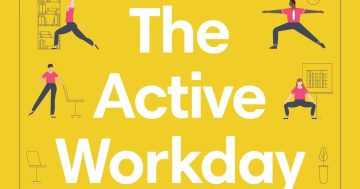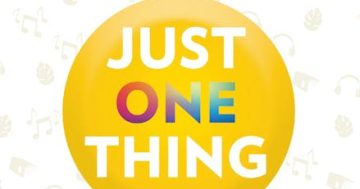Amantha Imber has some advice for those whose work seems to demand attention into the evening meal and beyond.
 My average workday used to have several ‘ends’.
My average workday used to have several ‘ends’.
I would end my day at the office by closing my laptop, putting it in my bag and saying goodbye to my workmates.
After putting my daughter to bed, I would take my laptop back out of my bag and squeeze in a tiny bit of work before dinner.
I’d close it again, grab some food, and return to my laptop.
Finally, when my Flux notification popped back up to tell me I needed to get off all devices to prepare for bed, I’d end my workday once more.
Not surprisingly, I never felt a sense of closure on any one workday. They simply blurred together.
Being deliberate about how we end our workday can have a hugely positive impact on how we feel about it — and how we feel about the next workday ahead of us.
Yet many of us suffer from ‘blurred workday syndrome’ and miss the opportunity to improve both engagement and productivity.
To create the perfect end to your workday, try these four tasks that can be done in just a few minutes, to S.H.U.T. down your day.
S — Say Thanks:
Take one-to-two minutes whenever possible to send someone a gratitude note.
This thank you might be in the form of an email or a text message and expresses your gratitude for something they did.
Gratitude has been shown time and time again to be an effective mood elevator, so it’s an excellent strategy to make sure you end your day on a high.
For example, research conducted at the University of Indiana found that the simple act of writing a letter of thanks to someone once a week for three weeks increased mental health for up to 12 weeks after the writing task concluded.
H — Halfway Halt:
Ernest Hemingway used to end his writing sessions mid-sentence.
It allowed for an easy start the next day, because he could simply complete the sentence and keep on going.
Essentially, it’s the writing equivalent of parking on a downhill slope.
It tricks our sometimes lazy brain into starting, because it’s starting from an easy base.
I now finish almost every day mid-way through a project.
It might be an article that I have structured, but not fleshed out.
It might be in the middle of a new product strategy I am working on, whereby I know exactly where to pick back up the next day.
So long as I am at a mid-point, starting work the next day becomes far easier.
U — Unconscious Pondering:
If you are particularly uncomfortable with the idea of not working well into the night, take advantage of the power of your unconscious mind.
This will allow the unconscious part of your brain to be working, while your conscious brain can relax.
To do this, think of a problem that requires creative thought to solve, and ask your mind to work on it overnight.
Alternatively, think about a big decision you need to make.
Research has shown that when we switch off from consciously thinking about the problem, our unconscious mind takes over and is a very effective creative thinker and decision-maker.
After having a good night’s sleep and then starting work the next day, it is very likely that a solution will present itself to you, and quite possibly when you least expect it, such as in the shower or while commuting to work.
T — To-done:
Making progress on projects that matter is the biggest contributor to our motivation at work, according to Professor Teresa Amabile from Harvard University.
Days where we kick some goals on our most important projects, be they major or minor, tend to be the days where we feel most engaged and energised about our work.
Rather than just writing to-do lists of everything you need to get done, try writing a to-done list of everything you have accomplished during the day to end it on a high.
Reflecting on all the great work you have done will maximise your engagement and motivation towards your work.
*Amantha Imber is the Founder of Inventium, an innovation consultancy and the host of How I Work, a podcast about the habits and rituals of the world’s most successful innovators. She can be contacted at www.inventium.com.au..
This article first appeared on the Inventium website.











